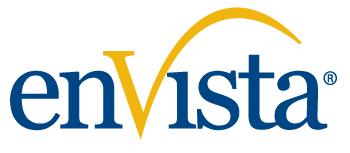Putting in a new warehouse management system (WMS) requires comprehensive due diligence around systems, IT and operational requirements to select the right system. However, the amount of time and attention spent understanding your internal limiters, obstacles and liabilities ensure the right change management plan is in place to get the most returns on your efforts. Below are different ideas for consideration to help build the ideal change management plan for a project.
Solution Designing with the End-User in Mind
When determining necessary functionality/improvements needed, an important factor in adoption success is making sure that there is representation of the end users to ensure their voices are heard. It can be easy to solution design based on what you think they need vs. hearing and end users share firsthand what they need and provide insight into the reason behind it.
Proactive Communication
Change can be scary and unwelcome to those who seek comfort in familiarity or don’t understand the need for change in the first place. Providing transparency and exposure to upcoming changes allows for a proactive dialogue with everyone impacted by the change to help them understand “the why behind the what” of the change, the benefits and what happens if the change isn’t made. A lack of proactive communication can make it difficult for people to absorb, reflect and embrace changes before they happen.
Documentation vs. Tribal Knowledge
Completing this analysis will help you understand how volatile the change may feel to your organization. Cultures deeply enveloped in the “tribal knowledge” bucket means they could experience unintentional pitfalls even if they have identified the right operational solution. There may be unknown operational gaps, disjointed onboarding, fragmented cross-functional training and a lack of historical record of things that have been tried and did not work to avoid history repeating itself.
Defined, Measurable, Actionable
Ensuring that there is an objective structure in your project roadmap that includes strategic project milestones and accountability mechanisms will help you accurately track progress and understand when mid-project recalibration is needed vs. allowing something to work itself out. This also provides organization and clarity on why certain changes need to be made if necessary.
Internal Resource Bandwidth
Often, people assigned to projects are asked to effectively balance the project at hand against their other projects and responsibilities. Having program management in place that factors in time-to-value and return on investment of each project helps create guardrails for resources on how to effectively organize and prioritize time for each project. This can help eliminate the feeling of being pulled in many different directions with the anxiety that you may be letting someone down by not focusing on their project or causing resource burnout.
Ongoing Maintenance/Support
It’s important to keep an open dialogue post systems go-live and project completions to monitor results, gain necessary feedback to create further refinement and quickly identify and adapt to changes that are needed because of changes to your business. Quarterly pulse checks are a great way to ensure you are mitigating any risks or costs that may occur post-project or help more proactively identify ways to create efficient pivot strategies should anything change in your business model.
enVista is an industry-leading supply chain consulting firm helping empower organizations to drive toward supply chain excellence. We leverage our thought leadership in consulting, technology, automation and operations to help make complexity objectively more simple and easier to manage move organizations forward and strengthen their supply chains.






